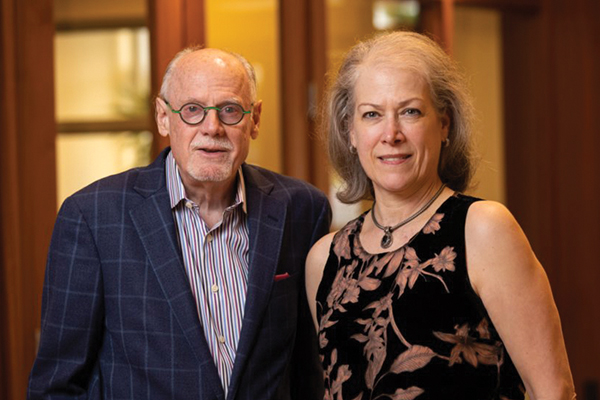 Roget de Percin Berendes & Tina Glenn
Roget de Percin Berendes & Tina GlennThis article is provided by Tina Glenn and Roget Berendes, owners of FirstLight Home Care of Guilford, located in Greensboro, North Carolina. For more information, visit https://www.firstlighthomecare.com/home-healthcare-guilford/ or call 336-808-1351.
Tina Glenn has over 40 years in healthcare and C-level executive experience of 28 years. She can be reached at 336-808-1357.
We believe that home remains the safest place for our elderly population right now.
Elderly people and those with underlying medical conditions are especially at risk and are most susceptible to the Novel Coronavirus (COVID-19). For that reason, the very nature of home care makes it the safest care environment for these individuals during this uncertain time. Potential exposure to the virus remains the lowest for those who can stay in their homes with limited outside contact.
The elderly population often needs specialized care to keep them stay safe and well. Because personal and companion care services are delivered one-to-one in the home environment, professional caregivers are in the best position to provide that much-needed care, as well as to observe any health challenges and significant changes to a client’s condition.
Caregivers can also ensure elderly clients have the necessary supply of essentials on hand, such as freezer-friendly and non-perishable foods; prescription and over-the-counter medications; and household supplies, like toilet paper, paper towels, soap and detergent.
Standard protocols help minimize risk
As a standard practice, home care companies should have an infection control plan in place so that caregivers take every precaution necessary to safeguard the health and safety of themselves and their clients. This includes always following established infection control protocols and being vigilant about protecting everyone from illness, be it the flu, COVID-19, or any other communicable disease.
Ongoing communication with caregivers, clients and families is also vital to help assess any known COVID-19 risk factors, to understand possible exposure, and to promote regular monitoring and reporting of symptoms.
Educating family caregivers is key
One of the most important things we can do as a home care company is to provide family caregivers with the information needed to assist their loved ones. Arming them with helpful information gives them the peace of mind that they are providing the best care.
As much as we encourage our elderly population to stay social and engaged, it is best to temporarily limit visits with friends and family to help reduce the risk of being exposed to Coronavirus. But being at home alone does not mean being isolated. Caregivers can provide conversation and companionship, as well as help a client stay virtually connected to the ones they love through FaceTime, Skype or other video chat apps.
Practicing healthy habits should be a priority, especially during this time. Caregivers can encourage elderly individuals to get adequate sleep, drink plenty of fluids, focus on healthy nutrition and fit in regular exercise.
Regardless of a viral outbreak or other situation, we strongly recommend that families have alternative arrangements for the provisions of care in case their loved one is unable to receive caregiving services in their home, or in the event they become ill and need to be hospitalized.
We believe that home remains the safest place for our elderly during this time. These individuals often rely on the assistance of professional caregivers to support them and meet their essential needs inside the home.


